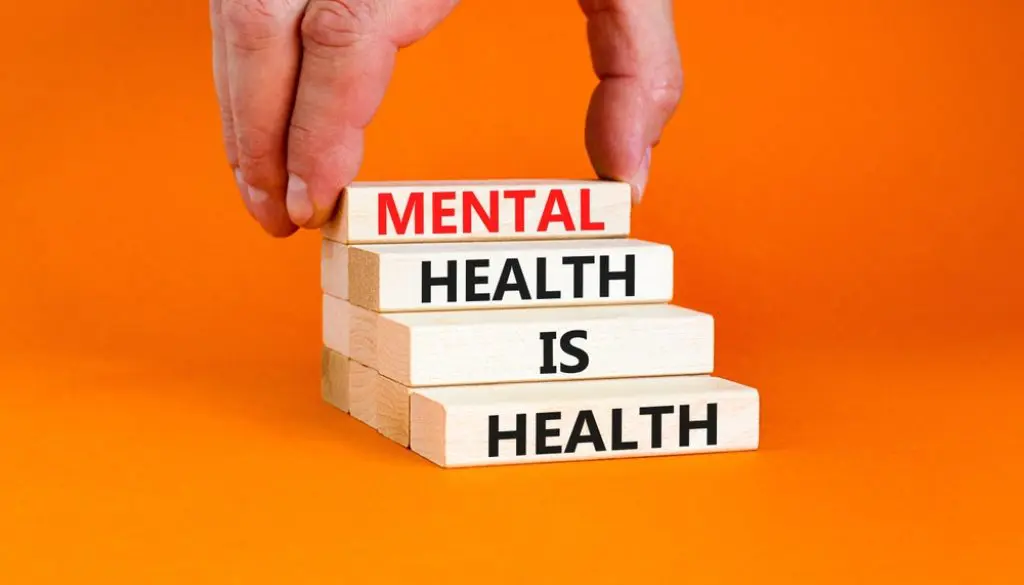May Safety Training: Mental Health
While many organizations prioritize physical safety in their emergency preparedness plans, mental health is just as important. Mental health encompasses an individual’s social, emotional and psychological well-being. Unaddressed mental health issues can have many consequences, including physical illnesses, self-harm and violent outbursts. Conversely, supporting mental health in the workplace can reduce sick days and improve morale.
Individuals struggling with mental or behavioral health issues may be less productive and have difficulty collaborating with colleagues. By incorporating mental health topics into safety training, corporations, healthcare institutions, schools and government organizations can support their workers and build a safe, positive work environment.
Mental health statistics
May is Mental Health Awareness Month. According to 2020 data from the U.S. Department of Health and Human Services, approximately 20% of American adults experienced a mental health issue. In that same year, about 5% of Americans experienced a serious mental illness, such as bipolar disorder, schizophrenia or depression.
Mental illness, especially when untreated, can have severe consequences. In 2020, over 30% of American adults with a mental illness also experienced a substance use disorder. Suicide, a common symptom of mental illness, is a leading cause of death in the U.S.
Unfortunately, many people don’t seek treatment for mental health issues. Some people feel that seeking help for mental illness is stigmatized, and many individuals don’t know where or how to ask for help. In 2020, only 46% of American adults with mental health issues received treatment.
Mental health safety training topics
Many different factors can affect mental health. It’s vital to provide comprehensive training that covers common mental health issues, contributing factors, healthy responses and helpful resources.
- Warning signs: Provide a comprehensive list of possible warning signs of mental illness: changes in sleep quality/quantity, lethargy, mood swings, feelings of hopelessness, suicidal ideation, lack of motivation and persistent negative thoughts.
- Personal mental health management: Encourage employees to monitor themselves for warning signs of mental illness and to seek treatment when necessary. Training courses can also include tips on managing mental health: maintaining a healthy work/life balance, getting enough sleep, meditating and attending therapy.
- Providing mental health support: Train managers at all levels to recognize signs of mental illness and support their team members emotionally. Ensure managers are can provide thorough, accurate mental health information to their workers.
- Available resources: Explain all available support and treatment resources, such as counseling (provided by the employer or a third party), sick leave, short-term disability leave and flexible/remote work options.
Unfortunately, many Americans who experience mental illness don’t have adequate health insurance coverage. In 2020, approximately 11% of Americans with mental illness had no insurance coverage. Employers can support mental health in the workplace by providing health insurance benefits that include coverage for mental illness.
Support good mental health in the workplace
Mental health support is crucial for a happy and productive workforce. Because it’s Mental Health Awareness Month, May is the perfect time to focus safety training on mental health issues. Ensure employees know the signs of mental health issues and the available paths for treatment. Employers can promote good mental health by encouraging the use of sick leave for mental health days, providing counseling and giving employees a safe and reliable way to report mental health concerns for themselves or their colleagues.
Communication is vital to supporting your employees’ mental health. Rave Mobile Safety offers several communication tools that facilitate open and honest communications between managers and workers. HR staff can send mental health reminders and tips, and managers can request status updates from their team members. In a mental health crisis, employees can quickly report an emergency situation, and managers can send alerts via email, voice, desktop notifications and text. For more information about our prebuilt packages and customizable solutions, contact our team.





